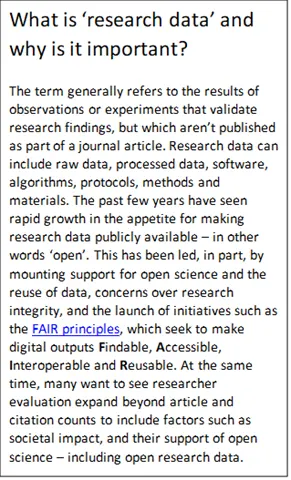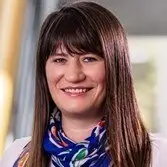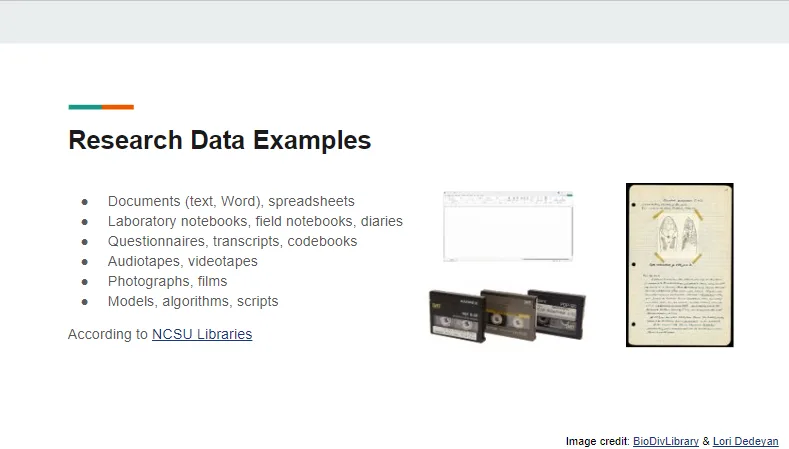With the growth of research data management, how can you ensure your library is offering the right support?
5. März 2024
Von Linda Willems

In this article, two librarians who participated in a recent ‘hands-on’ data services course run through the key lessons they learned
The past few years have seen an increasing number of governments, funders and publishers introduce or update policies around the storage, sharing and management of research data records. The 2023 National Institutes of Health revised research data management and sharing (DMS) policy, which introduced the need for applicants to submit a DMS plan, is just one recent example.
At many universities, academic libraries play a key role in responding to these policy changes. While this brings benefits for librarians, including the opportunity to build new collaborations on campus and demonstrate their value, it also poses challenges. For example, some face a steep learning curve to develop the research data management (RDM) skills required. For those with greater RDM knowledge, the challenge lies in keeping track of shifting policies and faculty needs.
Professional development can play an important role in helping librarians tackle the current and upcoming changes. In this article, we hear from two US-based librarians who recently completed a free data services education program developed by the Research Data Management Librarian Academy (RDMLA) and its partners.

The 10-week Data Services Continuing Professional Education (DSCPE), which is funded by Elsevier, aims to “prepare early-to-mid career working librarians to provide needed data services” via interactive online sessions and a hands-on capstone project with a mentor.
The 2023 DSCPE course participants we interviewed
Tamara Law has held the role of Assistant Professor and Reference/Instruction Librarian at Francis Marion University a small liberal arts university in Florence, South Carolina, for six years.
Motivation for taking the course: “I'm naturally curious, so when RDM was first mentioned to me around two years ago, I wanted to learn about this new and growing field. I began by working my way through the 11 modules of the RDLMA’s free online curriculum course, then someone told me about the DSCPE. I applied because it really aligns with the reason I became a librarian – to help researchers.”

Tamara Law
Erica Newcome is the STEM and Interdisciplinary Research Librarian at the University of Miami, a research institution in Florida. She is the liaison librarian to the College of Engineering and the departments of Chemistry, Computer Science, Mathematics and Physics.
Motivation for taking the course: I was exposed to RDM, and data in general, via library and software carpentry classes. I wanted to go a bit deeper and understand what data services I could develop to help the STEM faculty. So, when my former supervisor forwarded an email about this course, I decided to apply.”

Erica Newcome
Gaining new insights and a fresh perspective
Since completing the course, it’s become clear that the materials created during their capstones aren’t the only rewards the librarians and their institutions are reaping.
They are using their new knowledge to build out the content and value of their roles. For example, Tamara says it is helping her library become more proactive in their outreach to faculty. “And my Dean and Head of Department have said they appreciate me taking the initiative to learn about this field and potentially bring in new partnerships and services,” she reveals. The course has also provided Tamara with practical resources. For example: “One of the modules goes into great depth about how you can launch RDM services at your institution, so I already have my plan ready.”
They have gained the understanding, language and confidence to discuss research data with colleagues across campus. Erica admits: “Because I now have the right terminology and knowledge, I am more active at things like department meetings.” Tamara adds: “Before the course, I talked to a couple of professors about RDM, but I didn't know how to form my questions. Now I know how to engage in conversation and what to ask.”
They are better prepared for the future! Erica says: “For me, this is only the beginning – I think it’s inevitable that data collection will continue to grow in importance. Taking a course like this is great, because whether you are new to the topic or already have a little knowledge, you’ll learn a lot in a short amount of time. It’s a win-win.” Tamara agrees: “A lot of schools are now having to hire research data management specialists or train librarians. Taking a course like this enables you to get ahead of the curve and you don’t have to worry about a time crunch.”
5 tips for growing your library’s RDM support
Do your research When Tamara decided to learn about RDM, she searched online for information. This led her to discover an old colleague was working nearby as a research data librarian. “I was able to reach out to her and find out more about how she got that role and what the day-to-day job is like.” Tamara also downloaded data librarian job descriptions from other universities, which proved to be a great source of information on the kinds of services, tools and resources that other institutions provide.
Reach out to faculty For Erica, this has proved to be a successful tactic, not only for RDM, but for all new and emerging areas: “A lot of times, faculty will let you know what programs or support they need. And talking with them is a great opportunity to grow your network.” Tamara adds: “Librarians are often introverted, and we wait for faculty to come to us. Outreach keeps you at the forefront of what is happening in your field and enables you to be proactive about new services you can offer.”
Take a course Erica notes: “There is a lot of information associated with good RDM – the language, the guidelines, how you should communicate with faculty, etc. Before talking with others, it's really helpful to educate yourself through a course like this.” In fact, following their DSCPE experiences, both Erica and Tamara plan to keep learning about RDM: “It’s a field that is growing and changing so quickly,” Tamara explains.
Conduct a survey Through her capstone project, Tamara has discovered first-hand how useful this can be to gather information and make new contacts. Importantly, it is also providing vital input for her library’s strategic planning.
Understand that RDM is relevant; whatever the size or focus of your university One of Tamara’s key takeaways from the process is that every institution has professors on campus who need RDM support “even at small liberal arts universities like mine, so we can all benefit from learning about it.”
The value of hands-on training with an experienced mentor
The capstone project was a major component of the DSCPE, comprising 50 hours of the 10-week course. Each participant was paired with a mentor at another US university, chosen to match their areas of interest.
Tamara’s capstone – a faculty-wide survey
Tamara was matched with Stacy Winchester, the Data Librarian at the University of South Carolina. Every five years, the institution administers a needs-assessment survey to its researchers based on the Data Asset Framework developed by the Digital Curation Centre and University of Glasgow. For her capstone, Tamara adapted this survey and implemented it at her own university.
“I began by looking over the 40 or so questions to get a feel for what I should be asking and familiarize myself with the terminology,” she explains. “And as I’m just getting started with RDM, I decided to pare my survey down to 10 basic questions.” These include:
How many projects are you currently working on or will work on in 2024 that produce research data?
Does your research data need to be preserved to satisfy a funder or publisher requirement?
Were you required by the funder to submit a Data Management Plan (DMP)?
With her survey ready, she enlisted the help of the Dean to distribute it to faculty and was delighted when she received 22 responses. “I’m interested in the professors who answered all 10 questions – there were nine of those in total. I’m now in the process of setting up Zoom calls with each of them,” she reveals. During those sessions, Tamara hopes to not only learn more about the professors’ research and how the library can help them, but to find out whether there are any research data-active faculty members she has missed. “It also gives me a chance to learn more about this growing area from the researchers themselves,” she adds.

Tamara's needs-assessment survey
Erica’s capstone – an RDM training workshop
Erica was paired with Andrzej Rutkowski, Acting Head of LIPA (Library for International & Public Affairs) and Visualization Specialist at University of Southern California.
“USC Libraries is currently improving its data education-related services and resources,” Erica explains. “And, for my capstone, I was tasked with hosting an introductory workshop on RDM and creating a workshop training document based on my experiences.”
Erica not only presented the hybrid workshop, she also developed and designed it. Reflecting on the experience, she notes: “I’m used to training students, and while they are great, the feedback can be a little lacking. This audience included some faculty and librarians who provided feedback during the session, so it was really useful.”
In fact, for Erica, the capstone has not only helped her learn more about RDM, it has also helped to improve her presentation skills. “In future, I will cut back on the volume of information I present so I have more time for questions, and I will also present at a slower pace,” she says. “And I’m going to simplify the content – after experiencing this program myself, I know it can be a little hard to understand RDM concepts the first time you hear them.”
According to Erica, plans are already underway to put those new-found skills into practice. For example: “This semester, I will give a workshop at my institution on the open-source project management tool OSF.”

Erica's training workshop
Interested in applying for this year’s DSCPE course?
The RDMLA is planning to train a new DSCPE cohort in the US this year. Tuition costs will again be covered by Elsevier. The 2024 course is scheduled to begin in the Fall – details will be added to DSCPE’s website shortly.
Based outside the US? The RDMLA also offers an 11-module online research data management course that you can follow at your own pace, whatever your location.
Mitwirkende*r
